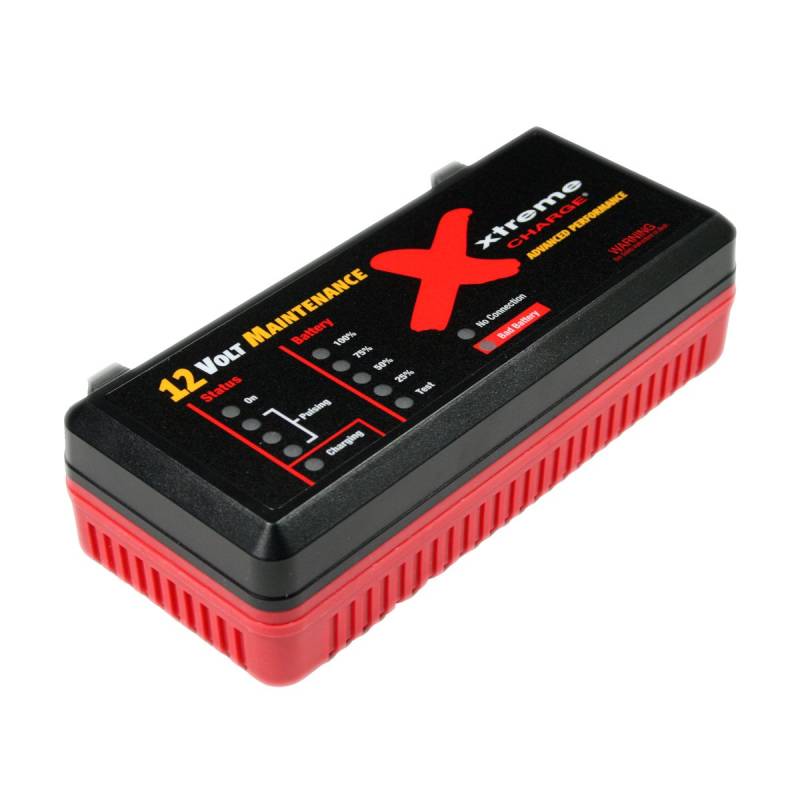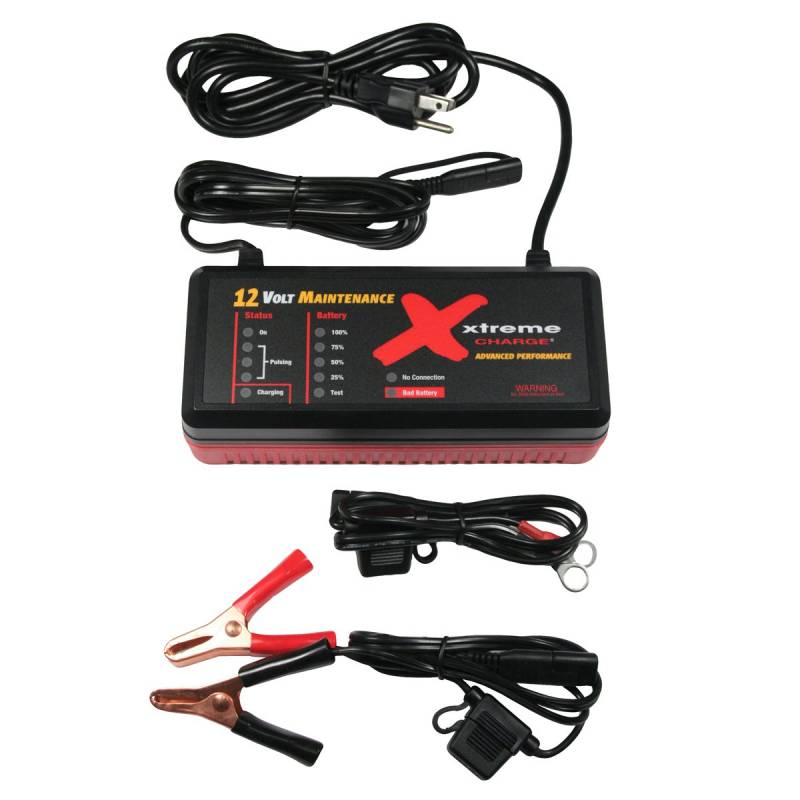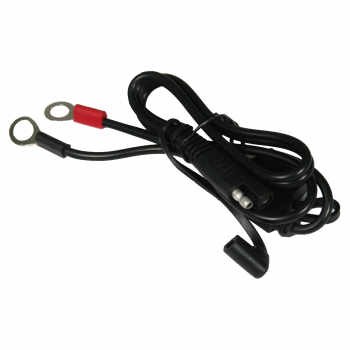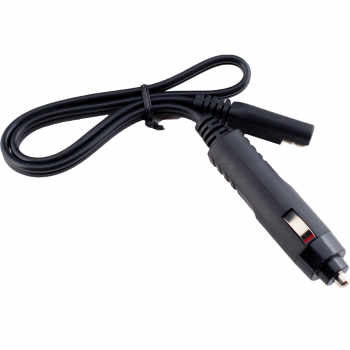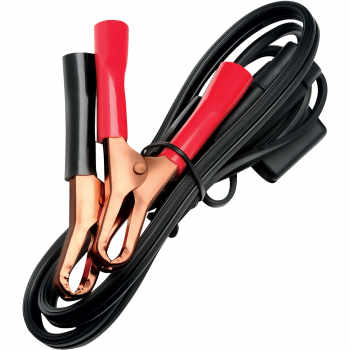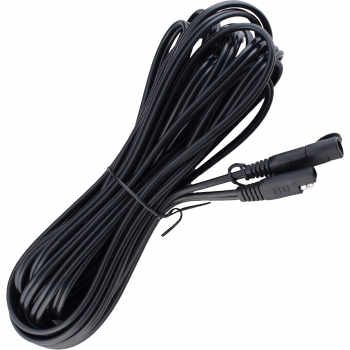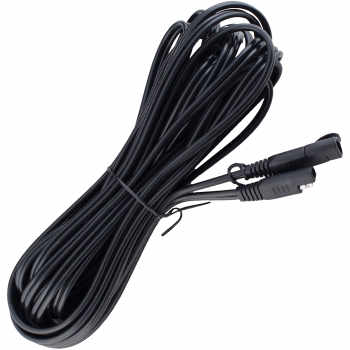Battery manufacturers publish the correct Bulk, Absorption and Float charging specifications for their batteries. As noted over-charging in particular can kill the life of a battery quickly. Under charging allows sulphation to occur even with high frequency pulse signals designed to remove sulphation.
It's worth noting that the Battery Minder 12248 is a more comprehensive battery charger/maintainer. It allows you to select the battery type - Flooded Wet Cell, AGM or Gel and also the charging current - 2-4-8 amps. What I found in my testing is that in the same tests that I ran on the XC100-P, the Battery Minder 12248 supplied the correct Absorption and Float voltages in ALL CASES. I attribute this to the fact that you can manually select the proper battery and the charger thus delivers the correct voltages for that battery type regardless of size in Ah. The Battery Minder 12248 never supplied excessive voltage even on the small 12 Ah AGM battery so to me the 12248 is the better charger for those who have a variety of battery sizes and types to charge and maintain.
The Battery Minder 12248 cost more than the XC100-P but it also performs far better IME. The price difference is far less than 1/2 the price of almost any battery of 12 Ah or greater. Most importantly it doesn't "cook" a battery with excessive voltage.
Battery Minder makes a fixed 2 amp. charger/maintainer model 2012, similar to the XC100-P and priced the same or less. I have not tested this charger. They also sell a model 1500 for ~$55. which is a 1.5 amp charger/maintainer. I have not tested this charger. The 12248, 2012 and 1500 models all have automatic Voltage Temperature Correction which is important if your battery is outside or in temps other than in the mid 70 F range. This can be very important.
When the battery/ambient temp goes lower you need to increase the Absorption and Float voltages to have a 100% fully charged battery. When the battery/ambient temp gets above the mid 80 F range you need to lower the Absorption and Float voltages to prevent damaging over-charging that kills batteries prematurely. Unfortunately the XC100-P has no temperature compensation. Since I planned to test it in the 70 F range that was not a concern but for those who might be charging an auto, marine, or other battery outside in hot or cold temps, temp compensation of the voltages is Very important and the only means to have a 100% charged battery that isn't overcharged and damaged. Battery makers specify the importance of correcting battery charge voltages based on the battery/ambient temp.
The more you know about the proper charging voltages for your batteries, the easier it will be to make an educated purchasing decision on what charger works best for your needs.
I purchased the Pulse Tech XC100-P and the Battery Minder 12248 "smart" chargers at the same time so that I could test and see for myself how smart these chargers really are. Both chargers appear to be top quality designs and if they perform as advertised then they should repay the purchase price in extended battery life or recovery of sulphated batteries - if you have some.
Since I have a variety of flooded wet cell and std. AGM batteries that I use all the time it was easy for me to make back-to-back comparisons between the two chargers in Bulk, Absorption and Float stages. I have no way to tell if either are able to reduce or eliminate most sulphation other than if I see longer battery life from all of the batteries I use them on. That will take years to determine and even though Battery University states that there isn't enough documented independent testing to confirm the high frequency pulse de-sulphation claims, I'll give these two companies the benefit of the doubt and see what transpires in my long term battery testing.
I am however concerned about the statement on the XC100-P being "very suitable" for all lead acid batteries because of it's "smart" technolgy. The issue is can the XC-100P really tell if a battery is a std. flooded wet cell or a maintenance free calcium lead (auto) type battery or a std. AGM battery or a gel cell battery or a special AGM battery like an Optima or Oddysey? The reason this is important is because thes batteries require different Absorption and Float voltages to be fully charged and not under or over charged.
My testing proved quite interesting. Read on in "Cons"...
Cons: The Pulse Tech XC100-P caused me some concern when I found the float voltage on a 12 Ah 12v AGM battery to be 14.25v when it should only be in the 13.4-13.6v range. Anything above this for a std. AGM battery is considered excessive and it will certainly hurt the batteries life as documented by many battery makers. I ran the test multiple times and the XC100-P simply is not appropriate for these smaller std. AGM batteries and could easily "cook" them if left on 24/7.
Next I tested the XC100-P on a 18 Ah std. AGM battery. On this battery the Absorption voltage was on the low side and the float voltage within the proper range.
Next I tested the XC100-P on a group 49 flooded wet cell automotive battery. On this battery the Absorption and Float voltages were within the proper charging ranges as specified by the battery maker.
Next I tested the XC100-P on a group 94 maintenance free automotive battery. The Absorption voltage was acceptable but the maintenance voltage was too low.
As a result of my testing so far I would say the XC100-P is a good battery charger/maintainer for larger std. flooded wet cell batteries. It is definitely less than ideal at charging maintenance free calcium-lead batteries to 100% full charge in my testing to date. It definitely is not acceptable at all for maintaining 12 Ah or smaller std. AGM batteries. It also may not be able to fully charge the Optima or Odyssey batteries to 100%.
Bear in mind that there are subtle differences in AGM battery contruction and some batteries like Optima and Odyssey in fact require a higher Absorption and Float voltages than conventional std. AGM batteries.
Knowing what I now know from my testing, if I had to do it over again, for my needs I would buy another Battery Minder 12248 and not the Pulse Tech XC100-P, which might be fine for other people's needs, but not the variety of batteries that I need to maintain. I suspected that the "smart" technology really could not sense what the battery type was and I think this was proven out in my testing. Other people's results may differ but this is how my XC100-P performed.
Continue on to "Other Thoughts"...




